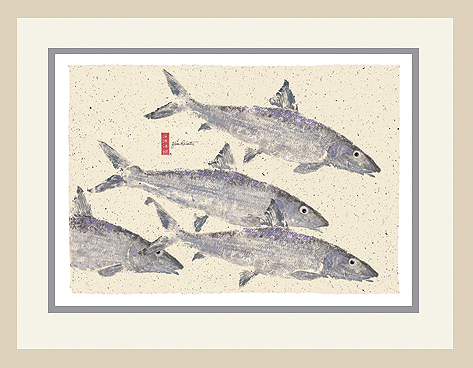
The brain is our favorite bodily organ. It is where we feel sex, love, and beauty. It is where we get guilty, depressed, and angry. It is the most complex object in the known Universe. So complex that science has only made the first tentative steps towards understanding it.
One thing is clear though: you have three brains. There are three brains nested within your skull: the lizard brain, the dog brain, and the human brain.
Brains have been evolving on this planet for a long time. Lizards got brains a couple of hundred million years ago. When lizard brains emerged several things appeared on the planet for the first time: lust, anger, and aggression. Lizard brains are small and simple. They control breathing, vision, bodily movement. They also allow fierce territorial fights, lusty bouts of mating, and displays of anger.
Lizard brains don't let their owners experience more complex states like loyalty. When an alligator lays her eggs, she leaves them. The baby alligators emerge fully programmed for life and as fierce as she is. The babies fend for themselves from the first breath. They have to. Their mother, father, and any other alligator will happily have them as lunch.
About 100 million years ago, loyalty appeared on Earth. Mammals emerged. They have more complex brains than reptiles. Specifically, mammals have a large brain that grew on top of the lizard brain. Dogs have two brains. They have the lizard brain, which forms a bump at the top of the spinal cord. This brain controls breathing and basic functions just as in lizards. It is hardwired to make mammals get turned on by sex, move automatically away from danger, and be able to defend territories. So much, so lizard.
Mammals’ new layer of brain—called the limbic system—is more complex. It is more densely wired and allows for richer experience. Dogs experience love and loyalty, as anyone knows who has one. Dogs are as adept at positive emotional attachment as we, and sometimes clearer about it.
Dogs’ limbic systems are anatomically distinct from their lizard brains. Evolution is conservative. It keeps old designs that work. The lizard brain is a beautiful design for performing basic bodily functions. Instead of starting from scratch when designing mammals, life kept the early hardwired structures and added a more complex layer to perform the subtler functions of mammalian lives.
Poetry, art, language and reason appeared on Earth a few hundred thousand years ago when our ancestors evolved. All apes have a third brain. In us, it is huge. It is inside this human brain that mathematics and music, deception and politics, religion and racism live. It is the Machiavelli as well as the Mozart brain, the Eichman as well as the Einstein brain.
This neo-cortex is functionally semi-independent from the lizard and dog brains. That is why our experience is so odd. Consider this: language lies in the human brain, but emotions lie within the separate dog and lizard brains. So the emotions are in a different world from language entirely. Not only that, reason too lives in the new human brain while emotions live in the older brains. The lizard and dog brains are running their emotion programs while the human brain is running its thinking programs. They don’t have too much to do with each other.
Have you ever wondered why you reach for that pile of hot greasy fries while you tell yourself you are on a diet? The answer is that you have three brains, and the older brains were wired to put on weight long ago when food was scarce. Your old brains are not easily controlled by your fancy new brain hardware that reads diet books.
The older brains cannot speak. They can only feel and act. This is where the self-contradictory nature of so much human behavior comes from. It explains why we can cheat on someone we love: each of our brains is pursuing different kinds of satisfaction.
The lizard brain is moved to lust. The dog brain is moved to love and loyalty. The human brain is moved to the idea of romance and a dream of ethics. (The human brain is also moved to sadomasochism and premeditated murder.)
So imagine the man with a cheating heart. He's married and loves his wife, but feels lust for another woman. He cheats on his wife with this other woman. While lying in tousled sheets afterward and staring at the ceiling, he can simultaneously enjoy satisfied lust, feel sad because of his disloyalty, and come up with a justification for his conduct.
Each of these is happening in a different one of his brains. His lizard brain feels and acts on lust and enjoys it. His dog brain feels sadness because he has broken the loving bond of loyalty with his wife that this brain feels so keenly. And he's working at justifications and excuses in his human brain, which spins out such things endlessly.
The fact that our emotions and intellect live in different brains inside our skull gets us into more than romantic trouble. Our reason can understand that the world's greatest problems include global warming and the poverty of most of the world's human beings. But reason lies in the human brain. Politicians well understand that by stirring up fears of terrorism, using patriotic jingoism and dangling the carrot of consumerism, they can mobilize the ancient lizard and dog brains and wash over reason with waves of emotion.
We have more than one memory system, too. There are independent memory systems in the neo-cortex and the limbic system. The big human brain has the intellectual memory where we remember facts and phone numbers. The dog brain has an emotion-based memory. It is slower to learn but retains memories longer. In fact it never forgets your experiences. As we age the neo-cortical memory degrades and we have senior moments. This doesn’t happen to the limbic brain. So it’s really true—an elephant never forgets. It may be that this accumulative and retentive function of limbic memory is the basis of how wisdom accumulates as we age.
The way the neo-cortical memory degrades while the limbic memory lasts may also have something to do with the differing ages at which certain human capacities peak. Scientists, mathematicians and criminals all do their best work early, usually by 35. Not so with writers, musicians and philosophers. Their best work comes later. Music, writing, and (sometimes) philosophy all touch into our emotions and bear an opportunity for the growth of wisdom. It could be that they all dip into limbic functions.
Can we better integrate our three brains? It turns out that meditation integrates the brains. It rewires and harmonizes them. It lets you see through the blandishments of consumerism and much other falsity. Harmonizing one's brain is a slow and patient project. Evolution has not had time to integrate our brains. Meditation is a way of choosing to help evolution reach its moulding hand inside our head. Three brains are swell, but three brains in harmony are bliss.
 I became introduced to iCreate - Australia today, the creative Magazine for Mac users.
The thing that attracted me to it was the Pro video Apps section, in which the focus was on Final Cut Pro 5 's interface.
I also like the feel and design of the magazine. I have always thought the macs look beautiful, and the new G5 is no exception.
There was also a CD attached, which included Adobe Go live demo, automator actions for Photoshop, Virtual ForeworX Screensaver shareware, and some iCANDY desktop picz of Mac stuff.
I don't own a Mac as yet, but Curd Rice Productions will be owning one next week, but i bought it in the hope of making me understand the Mac OS before i lay my hands on one for the first time. And if Mac impresses me, I am also willing to invest in a PowerBook, or IBook soon, to get away from the PC environment.
There was an interesting letter in the 'Talking Mac' section in the mag (its the forum page), a guy has written that;
I became introduced to iCreate - Australia today, the creative Magazine for Mac users.
The thing that attracted me to it was the Pro video Apps section, in which the focus was on Final Cut Pro 5 's interface.
I also like the feel and design of the magazine. I have always thought the macs look beautiful, and the new G5 is no exception.
There was also a CD attached, which included Adobe Go live demo, automator actions for Photoshop, Virtual ForeworX Screensaver shareware, and some iCANDY desktop picz of Mac stuff.
I don't own a Mac as yet, but Curd Rice Productions will be owning one next week, but i bought it in the hope of making me understand the Mac OS before i lay my hands on one for the first time. And if Mac impresses me, I am also willing to invest in a PowerBook, or IBook soon, to get away from the PC environment.
There was an interesting letter in the 'Talking Mac' section in the mag (its the forum page), a guy has written that;

 Ingredients
-1 cup milk or soya milk
-1 ripe banana (93 cal)
-1/2 cup fat-free yogurt (fresh or frozen)
-Flavorings (e.g. vanilla, chocolate syrup - optional)
Ingredients
-1 cup milk or soya milk
-1 ripe banana (93 cal)
-1/2 cup fat-free yogurt (fresh or frozen)
-Flavorings (e.g. vanilla, chocolate syrup - optional) 













